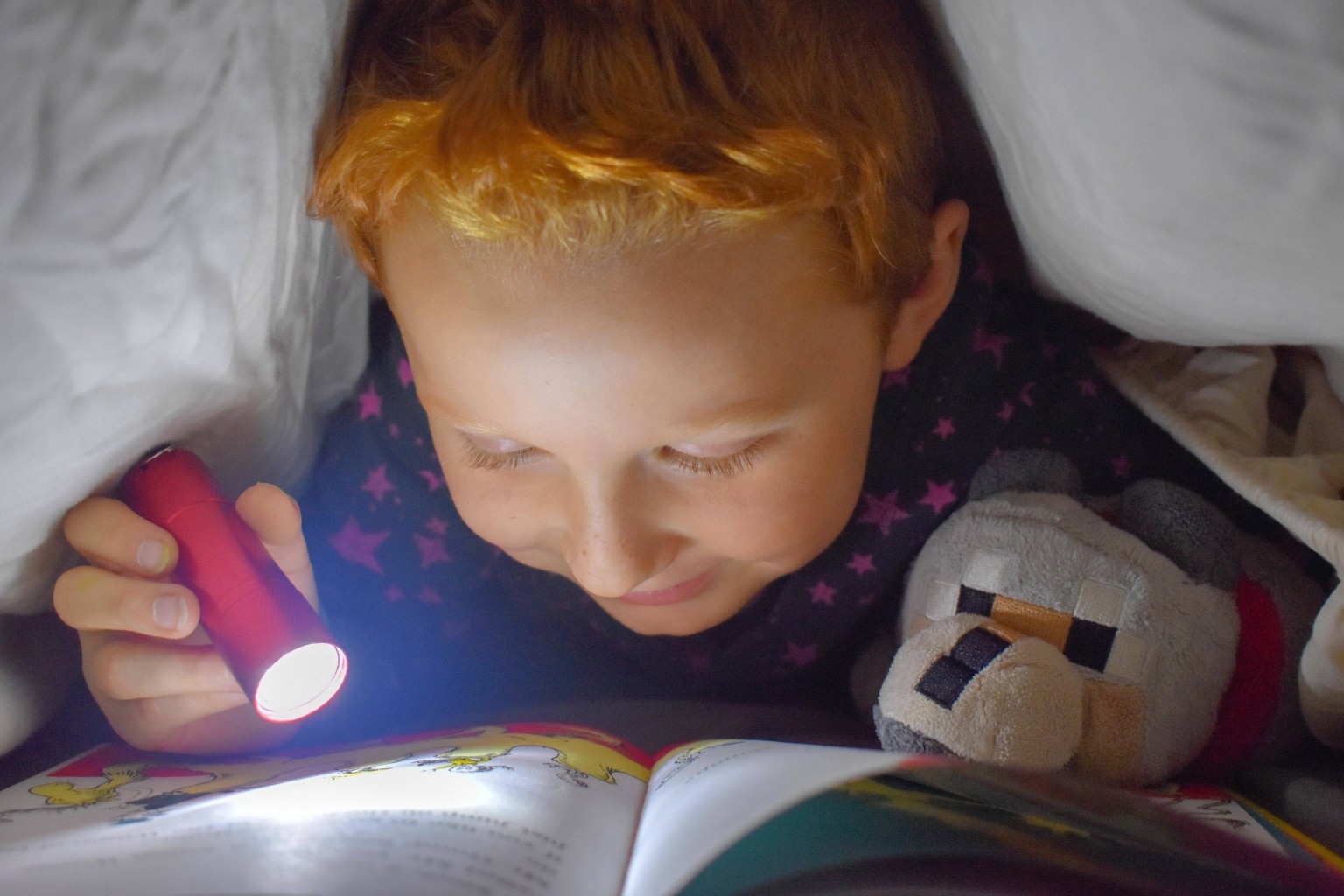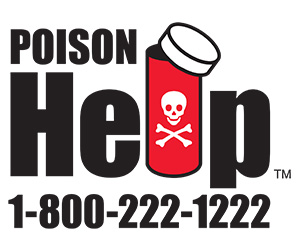Por qué el sueño es el ingrediente secreto para el éxito del regreso a la escuela

"El sueño es importante para todos nosotros, pero una buena noche de descanso lo es todo para los niños y adolescentes", dice el activista estudiantil David Magee. Justo a tiempo para el regreso a la escuela, comparte su consejos para ayudar a su estudiante (sin importar su edad)
Todos sabemos que dormir lo suficiente es fundamental para los niños, y esto es lo más importante para la mayoría de los padres ahora que la escuela ha vuelto a la sesión. (¡No más acostarse en la cama hasta el mediodía!) Lamentablemente, la mayoría de los niños, en particular los adolescentes, no se acercan a las 9.25 horas recomendadas que necesitan. Su sueño está siendo robado por una tormenta perfecta de interrupciones: desde montones de tareas hasta actividades extracurriculares que absorben todo su tiempo hasta distracciones constantes causadas por sus dispositivos digitales.
Pero con algunos hábitos saludables, los padres pueden ayudar a los estudiantes a mejorar enormemente su sueño, justo a tiempo para el nuevo año escolar, dice el activista de bienestar estudiantil David Magee.
Las siguientes son recomendaciones de David Magee para ayudar a su hijo a dormir lo que necesita desesperadamente:
Hable con su hijo sobre la importancia del sueño. No predique y presione a su hijo para que se vaya a la cama, dice Magee. (Eso casi siempre es contraproducente). En su lugar, inicie una conversación abierta y continua sobre su importancia. Más de un tercio de todos los adolescentes duermen solo de cinco a seis horas por noche.Es mucho más probable que una discusión sincera llegue a ellos que una conferencia.
"Los niños anhelan la alegría más que cualquier otra cosa", dice. "Desafortunadamente, muchos de los peligros que amenazan a los niños, como las drogas, el alcohol y las enfermedades mentales, les roban esa alegría. Los jóvenes necesitan una "caja de herramientas" de herramientas y hábitos para ayudarlos a guiarse hacia la alegría y alejarse de la ansiedad, la depresión y el abuso de sustancias. Además de dormir, los niños deben priorizar el ejercicio diario, el tiempo de calidad con la familia, el uso consciente de teléfonos inteligentes y redes sociales, y la fe en algo más grande que ellos mismos".
Ayúdelos a elegir una hora de acostarse saludable. "Deje que su hijo sea parte de esta discusión", dice Magee. "Escuche los pensamientos de su hijo y trabaje con ellos para encontrar una hora adecuada para acostarse juntos. Esté dispuesto a comprometerse un poco, si es necesario, pero asegúrese de llegar a un momento que funcione para todos".
Identificar sus obstáculos para dormir. ¿Qué se interpone en el camino del sueño de su hijo? ¿Están tomando cafeína a las 4:00 de la tarde? ¿Ven programas de televisión demasiado estimulantes o juegan videojuegos justo antes de acostarse? ¿La luz azul que emite su teléfono inteligente los mantiene conectados mucho después de la hora de acostarse? (Este es un fenómeno común que suprime la melatonina, la hormona del sueño).
Examine a estos culpables típicos y pregúntele a su hijo qué cree que le impide cansarse y quedarse dormido. Luego establezca algunas pautas para ayudarlos a cansarse en el momento adecuado.
Recuérdeles que mantengan el teléfono y la computadora portátil lejos de la cama. Haga hincapié en que la cama es para dormir, no para el tiempo social o para hacer la tarea. Si su hijo aún no tiene un espacio en el hogar para hacer estas cosas, ayúdelo a instalar un escritorio o elija un lugar en la mesa de la cocina para las tareas escolares. Cuando llegue la hora de dormir, todos los dispositivos deben almacenarse en otro lugar durante la noche.
Explique que el uso de sustancias se correlaciona con la falta de sueño. Algunos niños (y adultos) usan sustancias para ayudarlos a relajarse y conciliar el sueño. Pero un estudio de la Universidad de Buffalo mostró que existe una clara asociación entre el consumo de alcohol y marihuana y la privación del sueño. Además, aquellos con tendencias de abuso de sustancias usan más cuando están cansados, por lo que la privación del sueño y el uso de sustancias se alimentan mutuamente. Esta es solo una de las muchas razones por las que los niños deben abstenerse de sustancias, dice Magee. Asegúrese de que estén al tanto de la conexión.
Si su hijo muestra síntomas de TDAH, trabaje en el sueño como primera línea de defensa. El comportamiento que imita el TDAH, como no poder quedarse quieto y concentrarse en la clase o la tarea, puede ser causado por la falta de sueño. Pero los medicamentos típicos para el TDAH como Adderall o Vyvanse pueden intensificar la falta de sueño cuando el TDAH puede no ser el problema principal en absoluto. Antes de darle a su hijo una receta, primero vea cómo responden sus síntomas a un sueño más rutinario de alta calidad.
Finalmente, piense cuidadosamente sobre sus actividades extracurriculares y la carga de cursos académicos. Los estudiantes de hoy enfrentan presión de todos los lados para lograr y tener éxito. A menudo, esto es impulsado por la necesidad de construir sus currículums para que puedan ingresar a las universidades "correctas". Muchos se cargan con honores y clases AP y se unen a cualquier número de equipos deportivos, clubes y organizaciones de servicio. Desafortunadamente, los horarios sobrecargados pasan factura. Además de robarles el sueño que sus cerebros y cuerpos necesitan, presionarlos demasiado puede ser perjudicial para su salud mental.
"Sí, el éxito académico importa, pero también es fundamental que la salud mental de su hijo esté intacta", dice Magee. "Piense cuidadosamente en lo que su hijo puede manejar y asegúrese de que sean parte de la conversación antes de llenar su horario. Si tienen dificultades, puede
ayudarlos a elegir reducir un poco las actividades o tomar una carga de cursos más ligera el próximo semestre ".
El resultado final: los estudiantes son más capaces de enfrentar los desafíos de la vida con más sueño, no menos. Se desempeñarán mejor académicamente con un descanso adecuado, pero lo más importante es que el sueño mejora su salud mental general. Y eso puede hacer una enorme diferencia en todos los aspectos de sus vidas.
"El nuevo año escolar es el momento perfecto para tener la 'charla de sueño' con sus hijos y probar una nueva rutina", concluye Magee. "Los hábitos de salud que forman ahora les servirán por el resto de sus vidas".
Acerca de David Magee:
David Magee es el autor más vendido de Things Have Changed: What Every Parent (and Educator) Should Know About the Student Mental Health and Substance Misuse Crisis y Dear William: A Father's Memoir of Addiction, Recovery, Love, and Loss, un bestseller de Publisher's Weekly, nombrado Mejor Libro del Sur y presentado en CBS Mornings, y otros libros de no ficción. Un agente de cambio en la salud mental de estudiantes y familias y el uso indebido de sustancias, es un creador del Instituto William Magee para el Bienestar Estudiantil en la Universidad de Mississippi y un orador educativo y motivacional frecuente K-12 y universitario, ayudando a estudiantes y padres a encontrar y mantener su alegría.
ENGLISH
Why Sleep Is the Secret Ingredient for Back-to-School Success
“Sleep is important for us all, but a good night’s rest is everything for children and teens, says student wellbeing activist David Magee. Just in time for back to school, he shares hisadvice to help your student (no matter their age) get the shut-eye they need.”
We all know that getting enough sleep is critical for children, and this is top of mind for most parents now that school is back in session. (No more lying in bed till noon!) Sadly, most kids—teens in particular—don’t get anywhere close to the recommended 9.25 hours they need. Their sleep is being stolen by a perfect storm of interruptions: from piles of homework to extracurriculars that suck up all their time to constant distractions caused by their digital devices.
But with a few healthy habits, parents can help students vastly improve their sleep, just in time for the new school year, says student wellbeing activist David Magee.
The following are recommendations from David Magee to help your child get the sleep they desperately need:
Talk to your child about the importance of sleep. Don’t preach and pressure your child to go to bed, says Magee. (That almost always backfires.) Instead, start an open and ongoing conversation about its importance. More than one third of all teens get only five to six hours of sleep a night. Chances are your child is under slept too. A candid discussion is far more likely to get through to them than a lecture.
“Children crave joy more than anything else,” he says. “Unfortunately, many of the dangers threatening children—like drugs, alcohol, and mental illness—rob them of that joy. Young people need a ‘toolbox’ of tools and habits to help steer them toward joy and away from anxiety, depression, and substance misuse. In addition to sleep, children should prioritize daily exercise, quality time with family, mindful smartphone and social media use, and faith in something bigger than themselves.”
Help them choose a healthy bedtime. “Let your child be part of this discussion,” says Magee. “Listen to your child’s thoughts and work with them to find an appropriate bedtime together. Be willing to compromise a bit, if necessary, but ensure that you land on a time that works for everyone.”
Identify their sleep obstacles. What’s standing in the way of your child’s sleep? Are they having caffeine at 4:00 in the afternoon? Do they watch overly stimulating television shows or play video games right before bed? Does the blue light emitting from their smartphone keep them wired long past bedtime? (This is a common phenomenon that suppresses melatonin, the sleep hormone.) Examine these typical culprits and ask your child what they think is preventing them from getting tired and falling asleep. Then establish some guidelines to help them get tired at the appropriate time.
Remind them to keep the phone and the laptop away from the bed. Emphasize that the bed is for sleeping, not for social time or doing homework. If your child doesn’t already have a space in the home to do these things, help them set up a desk or choose a spot at the kitchen table for schoolwork. When it’s time to sleep, all devices should be stored elsewhere for the night.
Explain that substance use correlates with poor sleep. Some children (and adults) use substances to help them relax and fall asleep. But a University of Buffalo study showed that there is a clear association between alcohol and marijuana use and sleep deprivation. Further, those with substance misuse tendencies use more when they are tired, so sleep deprivation and substance use feed off each other. This is only one of the many reasons children should abstain from substances, says Magee. Make sure they are aware of the connection.
If your child is showing ADHD symptoms, work on sleep as a first line of defense. Behavior that mimics ADHD, such as being unable to sit still and focus on class or homework, can be caused by a lack of sleep. But typical ADHD medications like Adderall or Vyvanse can intensify the lack of sleep when ADHD may not be the primary problem at all. Before getting your child a prescription, first see how their symptoms respond to more routine high-quality sleep.
Finally, think carefully about their extracurriculars and academic course load. Students today face pressure from all sides to achieve and succeed. Often this is driven by a need to build up their resumes so they can get into the “right” colleges. Many load up on honors and AP classes and join any number of sports teams, clubs, and service organizations. Unfortunately, overpacked schedules take a toll. Besides robbing them of the sleep their brains and bodies need, putting too much pressure on them can be harmful to their mental health.
“Yes, academic success matters, but it’s also critical that your child’s mental health is intact,” says Magee. “Think carefully about what your child can handle and make sure they are part of the conversation before filling up their schedule. If they are struggling, you might help them choose to cut back a bit on activities or take a lighter course load next semester.”
The bottom line: Students are better able to face life challenges with more sleep, not less. They will perform better academically with adequate rest, but more importantly, sleep improves their overall mental health. And that can make an enormous difference in every aspect of their lives.
“The new school year is the perfect time to have the ‘sleep talk’ with your children and try out a new routine,” concludes Magee. “The health habits they form now will serve them for the rest of their lives.”
About David Magee:
David Magee is the best-selling author of Things Have Changed: What Every Parent (and Educator) Should Know About the Student Mental Health and Substance Misuse Crisis and Dear William: A Father’s Memoir of Addiction, Recovery, Love, and Loss—a Publisher’s Weekly bestseller, named a Best Book of the South, and featured on CBS Mornings—and other nonfiction books. A changemaker in student and family mental health and substance misuse, he’s a creator of the William Magee Institute for Student Wellbeing at the University of Mississippi and a frequent K–12 and university educational and motivational speaker, helping students and parents find and keep their joy.
Comentar
Los campos obligatorios estan marcados con *
1 Comentarios
-
Ashley Pearl
26 October 2023 03:33Sleep is indeed the secret ingredient to back-to-school success. It's like the fuel that powers the learning engine. Just like some rappers that graduated college, achieving academic success often requires a balanced approach, and prioritizing sleep is a key part of that equation.
















































Comentar con Facebook